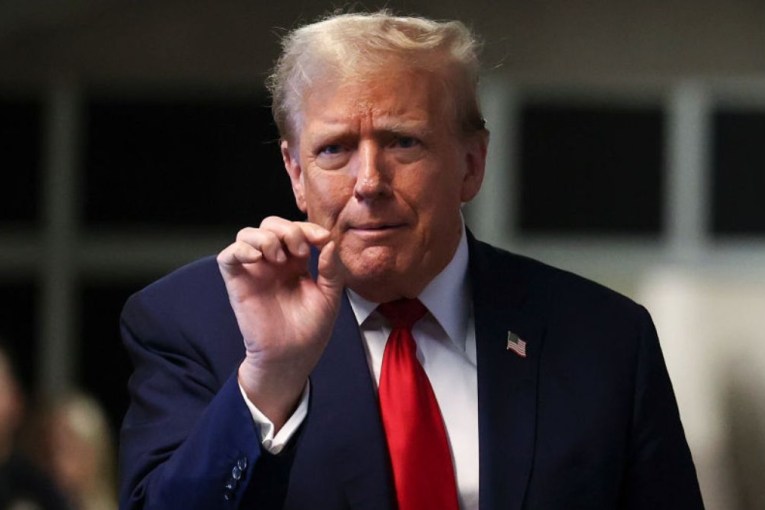West pressures Russia over Ukraine crisis
The United States and its European allies have exerted intense diplomatic pressure on Russia to get it to step back in the crisis over Ukraine, while offering billions in aid to Kiev’s near-bankrupt new government.
US Secretary of State John Kerry in Paris tried in vain to make his Russian counterpart, Sergei Lavrov, sit down for talks with Ukraine’s interim foreign minister, in an effort to defuse the worst West-versus-Moscow confrontation since the Cold War.
Although fears of outright war have faded a little, tensions remained disconcertingly high in Ukraine’s Crimean peninsula, which has been under the control of pro-Russian military units since the weekend.
A UN envoy sent there cut his mission short after being threatened by unidentified armed men. Gunmen described as Russian soldiers also seized part of a missile facility without firing a shot in another part of the flashpoint peninsula.
In the eastern Ukrainian town of Donetsk, a stronghold of ex-president Viktor Yanukovych, pro-Russian protestors with bloody faces forced their way past police lines to snatch back a regional government building they were ousted from earlier Wednesday.
The West underlined its determination to punish Russia over its actions in Ukraine, but while also giving Moscow time to “de-escalate” the situation.
NATO announced it was putting a slew of accords with Russia under “review” while boosting cooperation with non-member Ukraine.
The Organisation for Security and Co-operation in Europe (OSCE) also said it was sending 35 military observers to Ukraine.
The United States reaffirmed its warning that Russia could lose its membership in the G8 group of wealthy nations. And EU leaders are to hold an emergency summit on Thursday that some member states said could decide sanctions on Russia.
Against the ratcheting up of pressure, Russian President Vladimir Putin has so far remained defiant.
He is sticking to assertions he made Tuesday that Ukraine’s new government was illegitimate and the West was meddling.
Putin and Lavrov have also denied that the pro-Kremlin forces deployed in Crimea with insignia stripped from their uniforms were Russian soldiers.
But late Wednesday, Putin and German Chancellor Angela Merkel discussed “discussed possible scenarios for international co-operation” to normalise the situation in Ukraine, the Kremlin said in a statement.
In Paris, Lavrov said after meeting Kerry that discussions on Ukraine would continue in coming days.
Earlier Wednesday, Kerry had tried unsuccessfully to bring Lavrov and his interim Ukrainian counterpart, Andriy Deshchytsya, into the same room to start dialogue.
At one point, Lavrov and Deshchytsya separately entered the French foreign ministry building. But a Western diplomat said Lavrov soon left without seeing Deshchytsya.
Lavrov gave a briefing to reporters in which he said he and Kerry had agreed to revive a Europe-brokered agreement signed February 21 between Ukraine’s Viktor Yanukovych and the opposition that curbed the then-president’s powers and opened the way to early elections.
But a senior American diplomat in Kerry’s delegation denied that was the case and said the focus was on Russia talking directly to Ukraine’s new government.
Kerry was expected to outline proposals including Russian forces returning to their bases in Crimea, home to Russia’s Black Sea naval fleet.
Ukraine this week has called up reservists to counter what it calls a “Russian invasion” but has refrained from armed confrontation.
It says the crisis is quickly bringing it to its knees financially. It has pleaded for $35 billion over the next two years to stave off default.
The European Commission, the EU’s executive body, on Wednesday responded with a package of loans and grants worth up to 11 billion euros ($A17.02 billion) over the next two years for the country, which is not an EU member.
The United States has additionally announced a $US1 billion ($A1.12 billion) loan guarantee for Ukraine. An International Monetary Fund team is also in Ukraine to size up needs.
Amid the diplomatic arm-wrestling, threats of sanctions and financial moves, the situation in Crimea remains worrying.
The United Nations envoy to Crimea, Robert Serry, was on Wednesday threatened by unidentified gunmen in the regional capital Simferopol.
After being briefly detained in a coffee shop, he left, unhurt, by car. An assistant travelling with him told AFP he was cutting short his mission to the peninsula.








